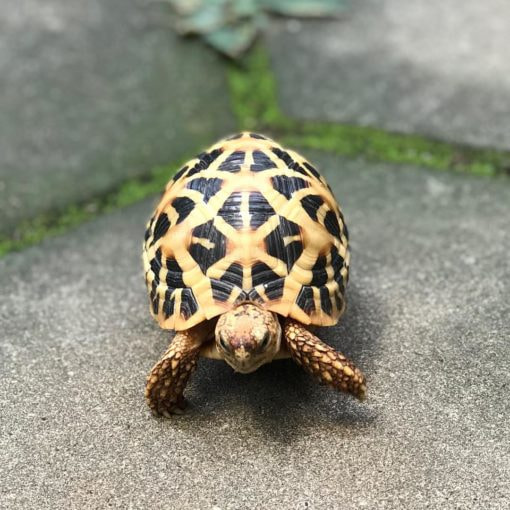When deciding on a tortoise as a pet, it’s crucial to think about factors like their size, longevity, dietary needs, and habitat setup. Certain tortoise species can become quite big, demanding ample space, whereas others remain smaller and more manageable. Different tortoise breeds often come with distinct feeding needs and care protocols. It’s wise to familiarize yourself with the various types of pet tortoises available.
With their extended lifespans and relatively simple care needs, tortoises are beloved pets. However, given the wide variety of tortoise breeds, selecting one that aligns with your lifestyle and home environment is essential.
When exploring tortoise options, it’s important to weigh their temperament and specific care requirements. Certain breeds are beginner-friendly, whereas others require expertise and specialized attention.
Here’s a closer look at some popular tortoise species and their defining features:
Russian Tortoise
Russian tortoises are hardy and small, making them perfect for beginners. They typically reach a length of 8-10 inches and thrive on a diet of leafy greens and vegetables.
Sulcata Tortoise
Known for their impressive size, Sulcata tortoises can grow to 30 inches and weigh over 100 pounds. These gentle giants need large habitats and are fed primarily on grasses and hays.
Mediterranean Tortoise
Greek tortoises are beginner-friendly pets, known for their compact size and approachable demeanor. At maturity, they measure 8-10 inches and prefer greens and vegetable-based diets.
Western Hermann’s Tortoise
Hermann’s tortoises are known for their calm nature and suitability as a pet. Growing to about 8-10 inches, they require a diet of leafy greens and vegetables. Living as long as 100 years, they require dedicated and consistent care throughout their lives.
Spotted Tortoise
Known for their distinctive spotted shells, Leopard tortoises need significant room to roam. At full size, they measure 18-24 inches and require a grass- and hay-based diet. Friendly in nature, they can live for up to 80 years, making them great long-term companions.
Colorful Forest Tortoise
This tortoise features distinctive red and orange markings, making it visually striking. Their size ranges from 10-14 inches, and they enjoy a mix of greens, vegetables, and fruits. These tortoises can live for five decades and are cherished for their approachable temperament.
Kleinmann’s Tortoise
The Egyptian tortoise is one of the smallest and rarest tortoise species. At 5-7 inches fully grown, their feeding routine includes fresh greens and vegetables. Their lifespan can reach 50 years, though they are naturally timid creatures.
Knowing the distinctions among order tortoise online breeds will help you make the best choice for your lifestyle. Think about your habitat, routine, and readiness to dedicate time to tortoise care before adopting one.
Looking for a new tortoise to bring into your life? Buying online offers convenience and a wide variety, but it’s crucial to choose a trusted source. Highly-rated sellers prioritize ethical standards, proper care, and the health of their animals. Seek platforms that include detailed information about species, high-quality images, and health assurances. Consider specialists specializing in tortoises, reputable exotic pet shops, or active reptile communities. Be sure to review customer feedback and verify secure shipping practices to ensure your tortoise arrives safely. Taking the time to research will help you bring in a thriving tortoise into your care. Make thoughtful choices and enjoy the journey!


 These reptiles are calm pets that require minimal care and are suitable for outdoor setups.
These reptiles are calm pets that require minimal care and are suitable for outdoor setups.